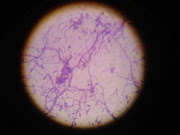Need to update more...
Just for reading
There are several COVID-19 vaccines validated for use by WHO (given Emergency Use Listing). The first mass vaccination programme started in early December 2020 and the number of vaccination doses administered is updated on a daily basis on the COVID-19 dashboard.
The WHO Emergency Use Listing process determines whether a product can be recommended for use based on all the available data on safety and efficacy and on its suitability in low- and middle-income countries. Vaccines are assessed to ensure they meet acceptable standards of quality, safety and efficacy using clinical trial data, manufacturing and quality control processes. The assessment weighs the threat posed by the emergency as well as the benefit that would accrue from the use of the product against any potential risks.
In line with their national regulations and legislation, countries have the autonomy to issue emergency use authorizations for any health product. Domestic emergency use authorizations are issued at the discretion of countries and not subject to WHO approval.
As of 12 January 2022, the following vaccines have obtained EUL:
- The Pfizer/BioNTech Comirnaty vaccine, 31 December 2020.
- The SII/COVISHIELD and AstraZeneca/AZD1222 vaccines, 16 February 2021.
- The Janssen/Ad26.COV 2.S vaccine developed by Johnson & Johnson, 12 March 2021.
- The Moderna COVID-19 vaccine (mRNA 1273), 30 April 2021.
- The Sinopharm COVID-19 vaccine, 7 May 2021.
- The Sinovac-CoronaVac vaccine, 1 June 2021.
- The Bharat Biotech BBV152 COVAXIN vaccine, 3 November 2021.
- The Covovax (NVX-CoV2373) vaccine, 17 December 2021.
- The Nuvaxovid (NVX-CoV2373) vaccine, 20 December 2021























